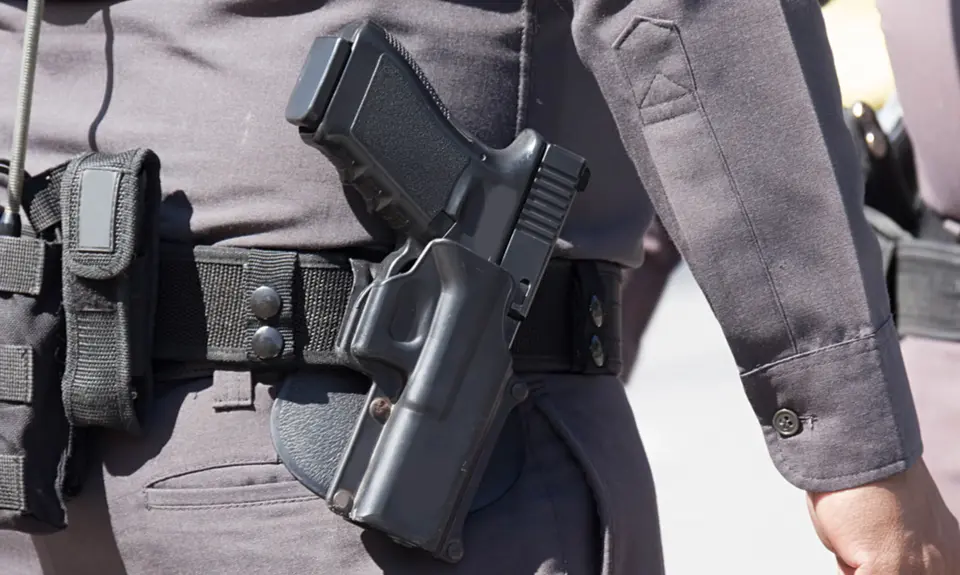“Confirmed Judges, Confirmed Fears” is a blog series documenting the harmful impact of President Trump’s judges on Americans’ rights and liberties. Cases in the series can be found by issue and by judge at this link.
Trump Third Circuit judges Stephanos Bibas, David Porter, Peter Phipps, and Paul Matey were deciding votes in an 8-6 majority ruling that refused to rehear a decision, in which Porter and Phipps had participated, that reversed a district court and granted qualified immunity to a state trooper who had shot and killed a Black man. The August 2020 case is In re Gibbons, 2020 U.S. App. Lexis 25548 (August 6, 2020).
One evening, Angel Stephens became concerned that her boyfriend, Willie Gibbons, had stopped taking his medication for schizophrenia, and called police after the two of them got into an argument. The police left without taking specific action, but Stephens obtained a restraining order against Gibbons prohibiting him from possessing firearms or returning to the house they shared, and police informed him that he would need a police escort to go there again.
The next day, Stephens called the police again, telling them that Gibbons was in front of the house, and they suggested she come down to the police station, even though she did not express concern for her safety. On her way there, Stephens saw Gibbons walking and called to report that he was heading for the police station, believing that Gibbons was going to “turn himself in.” It was unclear whether Gibbons then had a gun. State trooper Noah Bartelt, who was on desk duty, joined several other officers in attempting to look for Gibbons. As Bartelt headed for Gibbons’ reported location, he “inexplicably” disabled the camera in his car.
There was dispute about precisely what happened next. What is undisputed, however, was that Gibbons had a gun that was pointed at his own head and that within “seconds” of when police spotted Gibbons, Bartelt shot him twice and killed him. Gibbons’ family sued Bartelt and the police, contending that the use of deadly force was improper. The district court denied Bartelt’s request for qualified immunity, explaining that “genuine issues of disputed fact prevent the Court from holding that Trooper Bartelt was reasonable in his belief that Gibbons posed a danger to him or someone else,” and ruling that a jury should consider the case. Bartelt appealed.
In a unanimous three-judge court decision written by Trump judge Porter and joined by Trump judge Phipps, the Third Circuit reversed the district court and ruled that Bartelt was entitled to qualified immunity as a matter of law, claiming that Bartelt did not violate Gibbons’ “clearly established” constitutional rights based on the “specific facts at issue” in the case. Eight judges, including all four Trump nominees, denied a request that the full court reconsider the case. Six judges, including George W. Bush nominee Kent Jordan, dissented and would have reheard the case.
One of those dissenters, Judge Theodore McKee, issued a dissenting opinion, which was joined by several others. He explained that the three-judge court’s decision “squarely contradicts controlling precedent” in another Third Circuit case where police were held liable for shooting someone and where the relevant facts were “indistinguishable.” McKee went on to point out that for purposes of deciding whether Bartelt should get qualified immunity as a matter of law without presenting the issue to a jury, a court must assume “the truth” of the factual “allegations” made by those who filed the suit. In this case, however, the three-judge court had improperly resolved “multiple issues of disputed fact in Bartelt’s favor,” including whether Gibbons’ right arm was raised in surrender, whether Bartelt told Gibbons to drop his gun and gave him a chance to comply, and whether Gibbons threatened Bartelt or anyone else “in any way.” Under these circumstances, McKee continued, “a jury could readily conclude that a reasonable officer would have recognized the impermissibility of unleashing deadly force upon an individual who had displayed no sign whatsoever that he intended to harm anyone but himself.”
In conclusion, Judge McKee explained that while “remaining appreciative and cognizant of the risks that law enforcement officers face daily, we must nevertheless take care not to transform the shield of qualified immunity into a sword that licenses unreasonable force.” This tragic case, however, is yet another example of Trump judges doing precisely that, preventing accountability for police violence and misconduct.
